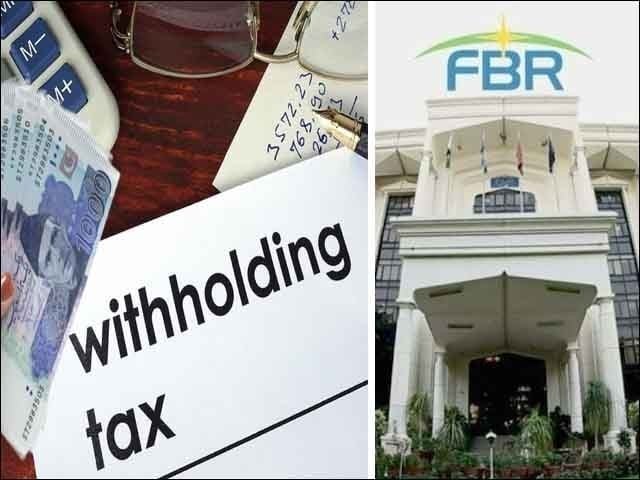ISLAMABAD: The government has decided to remove non-filers from the tax laws and ban their 15 types of activities, the government has got the support of big industrialists to get more revenue from existing filers and non-compliant citizens. .
Looking at income tax returns data, the FBR revealed that 94 percent of taxpayers in Pakistan’s middle income group are compliant, while the compliance rate among the richest one percent of Pakistanis is 29 percent. The government feels that there is a need to tighten the envelope around tax return filers.
The country’s major industrialists, corporate sector representatives and fast-moving consumer goods companies have backed the government’s new tax plan. The plan includes full control of filers and punishment of non-filers. In a meeting with industrialists and businessmen, Chairman FBR Rashid Langriyal told the participants that now the government is going to do away with the category of non-filers, it will stop the use of checks for withdrawing cash above the specified limit.
But now the government will remove the definitions of non-filers and late filers from the tax laws and also scrap Schedule 10 from the Income Tax Ordinance. This schedule doubles the rate of withholding tax on many transactions for non-filers.
Minister of State for Finance Ali Parvez Malik said that FBR has not used the data mines available to it, so now it is moving towards a new plan.
Chairman FBR said that 15 types of transactions of non-filers will be gradually banned, including travel for non-religious purposes. The cash withdrawal limit through check has also been proposed to be Rs 3 crore per annum. He said that the information will be shared with the banks by the State Bank to increase the pressure on cash withdrawal through cheques. The government will soon start buying properties whose cost has been declared below the market rate in tax returns.
He said that this provision was introduced during the tenure of former Prime Minister Shahid Khaqan Abbasi but it could not be implemented. In order to bring people into the tax net, the category of non-filers was introduced in the former PML-N government. People preferred to pay more taxes than to become filers.
Rashid Langriyal said that 1.33 trillion rupees withholding tax was paid last year. 423 billion rupees were not claimed by those who were non-filers. He said that imaginary filers are as big a problem as the problem of non-filers. Without solving these two problems, Pakistan’s tax problems will not be solved. Only 230,000 of the richest 1% of the 670,000 people filed their returns and disclosed their true income.
It is the richest one per cent who are responsible for the reduction of Rs 1.2 trillion out of the tax gap of Rs 1.32 trillion in the individual category. On the other hand, the situation of the poor is opposite and 94% of the poor are making their payments. Ali Parvez Malik said the new transformation plan aims to find non-tax and low-tax sectors and individuals to reduce the pressure on the formal sector.
FBR Member Policy Hamid Atiq Sarwar informed the industrialists and their representatives that new restrictions will be imposed on cash withdrawals exceeding Rs 30 million annually. Filers who claim income above Rs 10 million will only be allowed to buy a car, but will have to declare their source of income before buying a plot. Those with income below Rs 10 million will have to provide clarification before buying a car and plot and investing in securities and mutual funds.
Hamid Atiq, in his briefing, said that after adjusting for the effects of inflation and economic growth, FBR’s receipts have remained stable at Rs 3.1 trillion since 2004. Of the tax gap of Rs 5.9 trillion, Rs 2 trillion was from income tax. 60% of Pakistan’s population or 67 million people are below the taxable income threshold of Rs.6 lakh per annum.
Non-filers will be banned from buying property, cars, investing in stock market or mutual funds and opening current accounts, he said. The business community has supported these initiatives, except Ziad Bashir, the representative of Pakistan Retail Chains Association. Pakistan Business Council representative Bashir Dewan has also supported the government initiative.
Pakistan Textile Exporters Association representative Khurram Mukhtar and All Pakistan Textile Mills Association representative Shahid Sattar have also supported the government in this regard. Asad Shah, representative of the formal tobacco sector, has said that these measures are good but there will be challenges in implementing them. Arif Habib supported the proposal but also said that the FBR should be careful in implementing the proposal to discourage cash transactions.
Ziad Bashir said what message FBR was giving to the filers by taking this action against them. He suggested that FBR should allocate 3 thousand new private auditors to know the details of non-filers. Nestlé Pakistan representative Sheikh Waqar emphasized the need to implement the existing regulations. Mr. Rafiq, representing Jahangir Khan Tareen’s sugar industry empire, also supported the proposal and said that there should be no concept of unregistered persons doing business in Pakistan but said that withholding for wholesalers and distributors. Tax rates also need to be reduced.
Abbas Akhtar, representing the steel industry, supported the government and urged that these measures be made sustainable. Arif Saeed from the services industry said that to implement these standards, H

